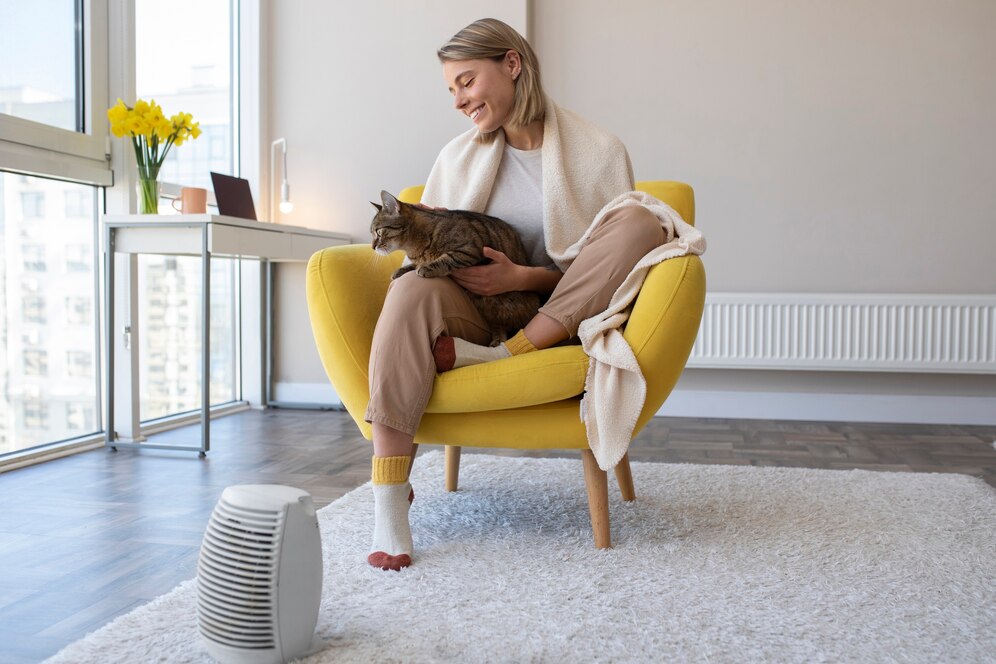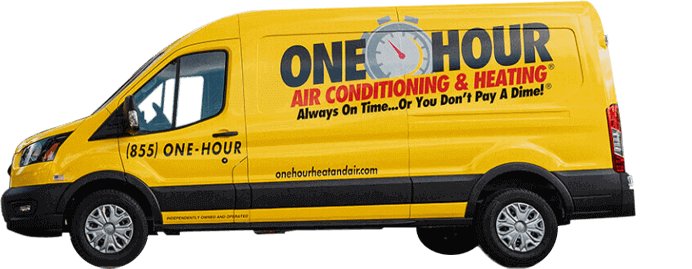In today’s fast-paced world, we spend most of our time indoors, making it vital to ensure a comfortable and healthy living environment within our homes. One key aspect of this is maintaining good indoor air quality, which can be affected by various factors such as airborne pollutants, allergens, and inadequate ventilation. Inadequate indoor air quality can lead to an array of discomforts and health issues for you and your family. One effective solution to tackle these concerns is incorporating air cleaners in your Dallas residence to create a safe and pleasant living space.
Air cleaners, as the name suggests, help clean and purify your home’s air by capturing and neutralizing airborne pollutants such as dust, pollen, pet dander, and even viruses and bacteria. A wide range of air cleaning solutions is available in the market, each catering to specific needs and contamination concerns. Investing in a quality air cleaner can significantly enhance your home’s indoor air quality, providing you and your family with improved health, well-being, and overall comfort.
The Link Between Indoor Air Quality and Health
Indoor air quality plays a pivotal role in your family’s overall health, comfort, and well-being. Poor indoor air quality, with high levels of pollutants and allergens, can exacerbate pre-existing health conditions such as asthma and allergies, as well as contribute to the development of respiratory issues, skin irritations, and other health concerns. Moreover, inadequate air quality can also impair mental focus, sleep quality, and overall mood. Ensuring clean and purified indoor air is, therefore, crucial to promoting a healthy and comfortable living environment for your family.
Types of Air Cleaning Solutions for Your Dallas Home
There are various air cleaning solutions available to cater to your home’s unique needs, each designed to target specific contaminants and improve indoor air quality in different ways. The primary types of air cleaners include:
1. Mechanical Air Filters
Mechanical air filters work by capturing particulate matter such as dust, pollen, and pet dander through a dense filter or screen. The most common type of mechanical air filter is the High-Efficiency Particulate Air (HEPA) filter, which has the ability to capture particles as small as 0.3 microns, effectively filtering out a vast majority of common airborne pollutants.
2. Electronic Air Cleaners
Electronic air cleaners, such as electrostatic precipitators, work by using an electric charge to attract and capture airborne pollutants. In this process, the air cleaner’s ionizer generates charged particles that adhere to contaminants, which are then captured on oppositely charged plates within the air cleaner, effectively filtering the air.
3. Ultraviolet Germicidal Irradiation (UVGI) Cleaners
UVGI cleaners use ultraviolet (UV) light to inactivate airborne pathogens, such as viruses, bacteria, and mold spores. These air cleaners are often installed as part of your home’s ductwork or HVAC system, providing an additional layer of protection against harmful microorganisms.
4. Activated Carbon Filters
Activated carbon filters are designed to tackle chemical pollutants, such as volatile organic compounds (VOCs) and odors. These filters consist of a porous material with a large surface area, which adsorbs chemical pollutants from the air, effectively reducing their concentration and improving overall air quality.
Factors to Consider When Choosing the Right Air Cleaner
To ensure optimal results and satisfaction, it is crucial to select an air cleaner best suited for your home’s unique needs. Here are a few factors to consider when choosing the right air-cleaning solution:
1. Type and Size of Contaminants
Before selecting an air cleaner, assess the types and sizes of contaminants prevalent in your home, as different air cleaners cater to different contaminants. For instance, if your primary concern is pollen and dust, a mechanical air filter or electronic air cleaner might be the most effective choice. Conversely, if your aim is to combat microbial contaminants, a UVGI cleaner might be more appropriate.
2. Size of Your Living Space
The size of your living space impacts the air cleaner’s efficacy in purifying your air. Ensure that the selected air cleaner is appropriately sized for your home, as an undersized unit may prove ineffective in cleaning the air adequately.
3. Maintenance and Replacement Requirements
The upkeep of your air cleaner is crucial to its long-term performance. Some air cleaners require regular filter replacement or plate cleaning, while others may necessitate periodic bulb replacement for UVGI units. Consider these maintenance and replacement requirements when choosing the right air cleaner for your home.
4. Budget and Cost-Effectiveness
When selecting an air cleaner, consider not only the upfront cost of the unit but also the ongoing maintenance and energy consumption expenses. Assess the cost-effectiveness of different air cleaners, ensuring that your chosen solution best aligns with your budget and provides the desired results.
Upgrade Your Home’s Air Quality with an Air Cleaner
Incorporating an air cleaner in your Dallas home can significantly enhance your indoor air quality, promoting a healthier and more comfortable living environment for you and your family. By understanding the various types of air cleaning solutions, their effectiveness in addressing specific air quality concerns, and the factors to consider when selecting the right air cleaner for your home, you can make informed decisions to optimize your home’s environment.
Take the first step toward a cleaner, healthier home today by scheduling a consultation with our skilled technicians at One Hour Heating & Air Conditioning. We are here to help you navigate the options and select the ideal air-cleaning solution for your unique needs, ensuring long-lasting satisfaction and comfort.











